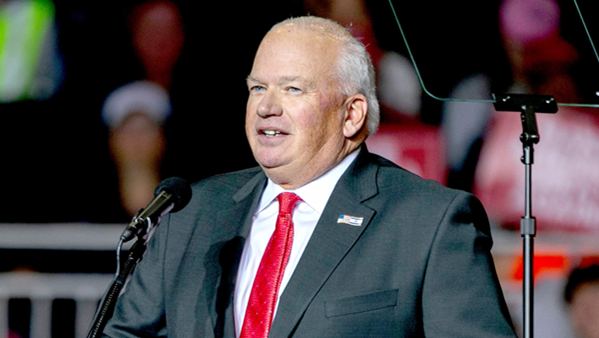|
Government & Politics
Republicans ramp up pressure on proxy-advisory firms
|

Scott Fitzgerald (Jim Vondruska/Bloomberg)
|
Republican lawmakers in Washington are ramping
up pressure on proxy-advisory firms Institutional Shareholder Services
and Glass Lewis & Co. for what they described as outsized influence
over U.S. company corporate governance.
“These foreign-owned proxy advisers use their
power to act as de facto regulators of American companies, dictating
the outcome of board elections and major business proposals,” Rep.
Scott Fitzgerald, R-Wis., said June 25 at a hearing focused on ISS and
Glass Lewis’ “anticompetitive” conduct. “They set their own
politically motivated agenda and pressure U.S. companies to comply.”
Fitzgerald led the hearing as chair of the
House Judiciary Subcommittee on the Administrative State, Regulatory
Reform, and Antitrust.
On June 24,
Fitzgerald introduced the Stopping
Proxy Advisor Racketeering Act,
a bill to “prohibit proxy-advisory firms from issuing voting
recommendations when any conflict could reasonably be expected to
affect the objectivity or reliability of proxy advice,” according to a
news release.
Separately, Sen.
Bill Hagerty, R-Tenn., on June 23 sent a letter to
Attorney General Pam Bondi and Federal Trade Commission Chair Andrew
Ferguson calling for ISS and Glass Lewis to be investigated for
antitrust violations.
“The dominant proxy advisory firms” — ISS and
Glass Lewis — “control more than 90% of the U.S. market for proxy
advisory services,” Hagerty said in the letter. “These foreign-owned
firms exploit their market power to suppress competition, hijack
corporate governance, impose ideological agendas, drive companies’
capital allocation decisions, influence U.S. public policy on
important matters, and undermine the welfare of American investors and
consumers.”
An ISS spokesperson
declined comment on Hagerty’s letter and the Judiciary subcommittee
hearing. But following a similar
hearing in April in the House
Financial Services Committee’s Subcommittee on Capital Markets, the
ISS spokesperson said the hearing “shows the degree to which critics
of proxy-advisory firms misrepresent the nature of our work, the way
in which clients use our services, the effective management of
potential conflicts, and, in the case of ISS, our long-standing
registration with the SEC as an investment adviser under the
Investment Advisers Act of 1940.”
Glass Lewis did not respond to a request for
comment.
Democrats at the June 25 hearing defended the
work of proxy firms.
Rep. Jerry Nadler, D-N.Y., the subcommittee’s
ranking member, said the antitrust claims against ISS and Glass Lewis
were baseless. “Proxy advisers are a vital tool for investors,” Nadler
added. “While deep-pocketed companies or clients can do assessments of
proxy materials in-house, retail investors and mutual funds rely on
expert independent advice from large proxy firms like ISS and Glass
Lewis.”
Institutional investors have historically
opposed reforms to the proxy-advice industry, noting that proxy firms
provide institutional investors with an alternative to the high costs
of individually performing the requisite analysis for hundreds of
thousands of ballot proposals at thousands of shareholder meetings
each proxy season.
At a meeting last
week, Marcie
Frost, CEO at the $547.2 billion
California Public Employees’ Retirement System, Sacramento, warned
that efforts to weaken or
eliminate the use of proxy firms would diminish institutional
investors and corporate governance in the U.S.
Frost criticized
comments made in May by Jamie Dimon, chair and CEO of J.P.
Morgan Chase & Co., when he
advocated for the elimination of ISS and Glass Lewis, calling
them a “cancer.”
Copyright © 2025. Crain Communications, Inc. |

